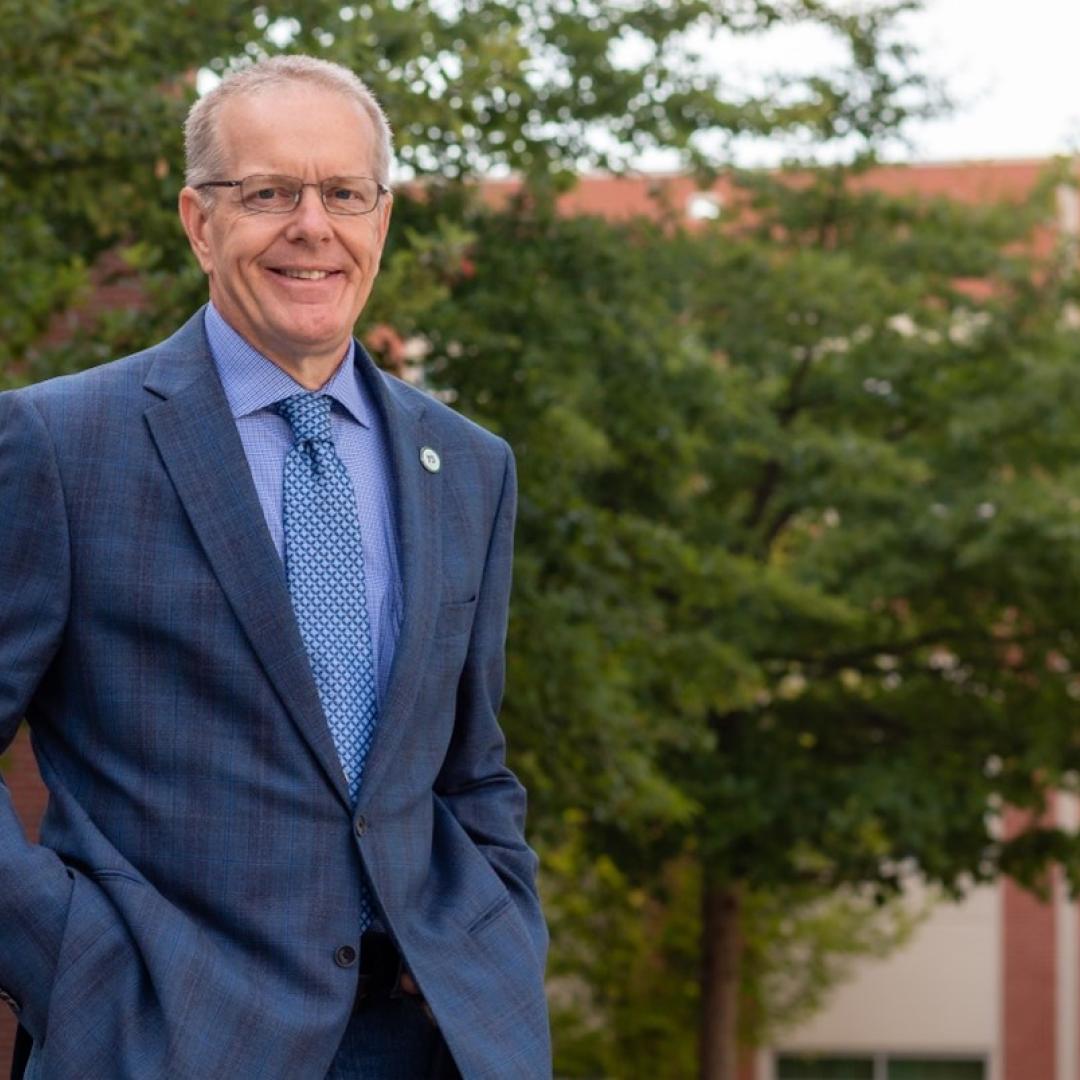
Filter News
Area of Research
- Advanced Manufacturing (19)
- Biology and Environment (41)
- Building Technologies (1)
- Clean Energy (122)
- Computational Biology (1)
- Computational Engineering (3)
- Computer Science (6)
- Electricity and Smart Grid (1)
- Fusion and Fission (5)
- Fusion Energy (8)
- Isotope Development and Production (1)
- Isotopes (5)
- Materials (32)
- Materials for Computing (5)
- Mathematics (1)
- National Security (26)
- Neutron Science (14)
- Nuclear Science and Technology (11)
- Nuclear Systems Modeling, Simulation and Validation (1)
- Quantum information Science (2)
- Sensors and Controls (1)
- Supercomputing (40)
- Transportation Systems (1)
News Type
News Topics
- (-) 3-D Printing/Advanced Manufacturing (86)
- (-) Advanced Reactors (25)
- (-) Biomedical (36)
- (-) Clean Water (20)
- (-) Cybersecurity (26)
- (-) Decarbonization (41)
- (-) Grid (42)
- (-) Irradiation (2)
- (-) Machine Learning (28)
- (-) Summit (28)
- Artificial Intelligence (46)
- Big Data (29)
- Bioenergy (55)
- Biology (59)
- Biotechnology (14)
- Buildings (40)
- Chemical Sciences (46)
- Climate Change (58)
- Composites (20)
- Computer Science (109)
- Coronavirus (34)
- Critical Materials (24)
- Education (3)
- Element Discovery (1)
- Energy Storage (86)
- Environment (114)
- Exascale Computing (13)
- Fossil Energy (1)
- Frontier (18)
- Fusion (30)
- High-Performance Computing (46)
- Hydropower (8)
- Isotopes (33)
- ITER (6)
- Materials (99)
- Materials Science (94)
- Mathematics (5)
- Mercury (9)
- Microelectronics (1)
- Microscopy (36)
- Molten Salt (7)
- Nanotechnology (44)
- National Security (36)
- Net Zero (6)
- Neutron Science (84)
- Nuclear Energy (60)
- Partnerships (28)
- Physics (44)
- Polymers (26)
- Quantum Computing (14)
- Quantum Science (38)
- Renewable Energy (1)
- Security (18)
- Simulation (19)
- Space Exploration (13)
- Statistics (2)
- Sustainable Energy (87)
- Transformational Challenge Reactor (4)
- Transportation (72)
Media Contacts
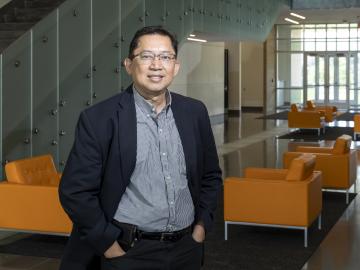
Rigoberto Advincula, a renowned scientist at ORNL and professor of Chemical and Biomolecular Engineering at the University of Tennessee, has won the Netzsch North American Thermal Analysis Society Fellows Award for 2023.
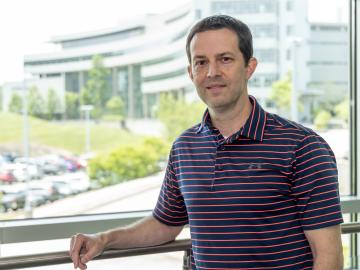
When reading the novel Jurassic Park as a teenager, Jerry Parks found the passages about gene sequencing and supercomputers fascinating, but never imagined he might someday pursue such futuristic-sounding science.
Oak Ridge National Laboratory scientists led the development of a supply chain model revealing the optimal places to site farms, biorefineries, pipelines and other infrastructure for sustainable aviation fuel production.
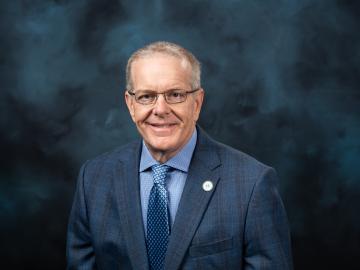
Craig Blue, Defense Manufacturing Program Director at the Department of Energy’s Oak Ridge National Laboratory, was recently elected to a two-year term on the Institute for Advanced Composites Manufacturing Innovation Consortium Council, a body of professionals from academia, state governments, and national laboratories that provides strategic direction and oversight to IACMI.
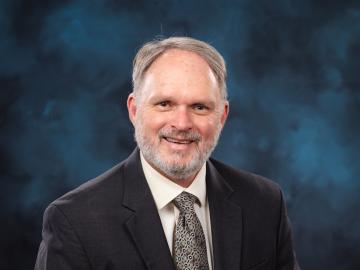
Mickey Wade has been named associate laboratory director for the Fusion and Fission Energy and Science Directorate at the Department of Energy’s Oak Ridge National Laboratory, effective April 1.
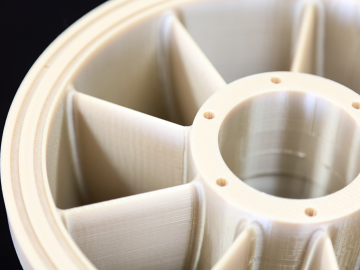
A new report published by ORNL assessed how advanced manufacturing and materials, such as 3D printing and novel component coatings, could offer solutions to modernize the existing fleet and design new approaches to hydropower.
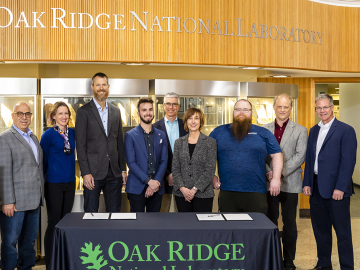
A technology developed at ORNL and used by the U.S. Naval Information Warfare Systems Command, or NAVWAR, to test the capabilities of commercial security tools has been licensed to cybersecurity firm Penguin Mustache to create its Evasive.ai platform. The company was founded by the technology’s creator, former ORNL scientist Jared M. Smith, and his business partner, entrepreneur Brandon Bruce.
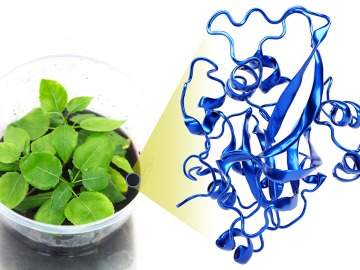
ORNL researchers have identified specific proteins and amino acids that could control bioenergy plants’ ability to identify beneficial microbes that can enhance plant growth and storage of carbon in soils.
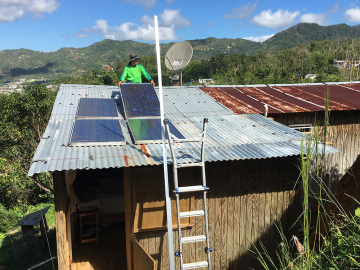
ORNL researchers Ben Ollis and Max Ferrari will be in Adjuntas to join the March 18 festivities but also to hammer out more technical details of their contribution to the project: making the microgrids even more reliable.
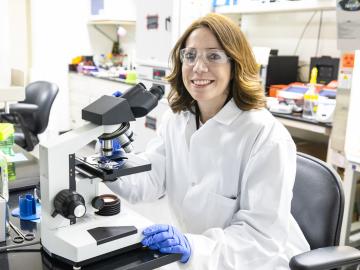
Joanna Tannous has found the perfect organism to study to satisfy her deeply curious nature, her skills in biochemistry and genetics, and a drive to create solutions for a better world. The organism is a poorly understood life form that greatly influences its environment and is unique enough to deserve its own biological kingdom: fungi.


